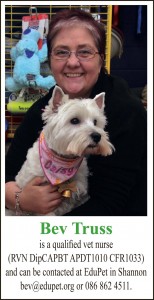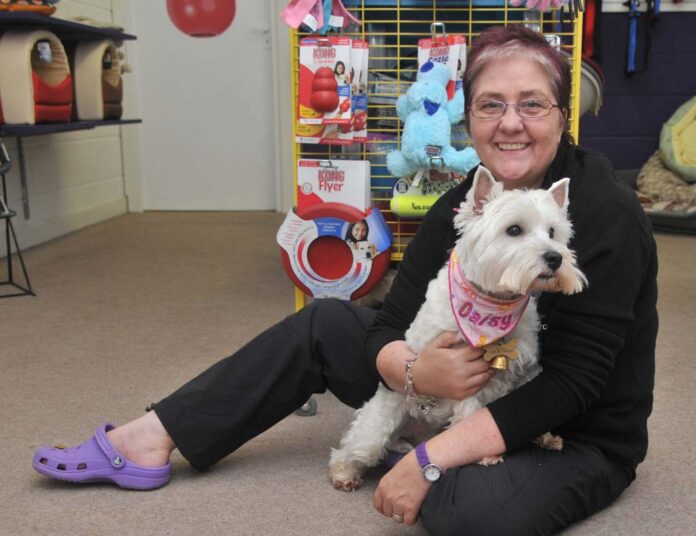KEEPING your dog happy and healthy is just part of being a dog owner and keeping your dog healthy also includes his mental well-being. These are just a few of the mental problems that your dog can have and ways to help your dog with his mental health.
Do dogs get depressed?
Of course, dogs get depressed. They go through bouts of depression for many reasons and you will notice your dog moping about and not wanting to play, drinking small amounts of water, going off their food and losing weight. You want your dog’s mental health to be good, but how can you tell what is causing this depression?
After you have ruled out a physical problem by having a check with the vet, you can then check what may be causing this change in your dog’s attitude.

Grief can cause depression in dogs just as it can in us. Has your dog lost a playmate recently? Maybe a dog down the street has moved away? Or maybe the child in your family has gone off to college? Is there a new baby in the house and you no longer have time to spend with your dog? Your dog longs for that companionship and now it is gone. If you have moved home or have new working hours this can also be the root of your dog’s depression. Start helping your dog to enjoy life again. Give him extra attention and love. Depression untreated can lead to more serious physical problems that you are sure to want to avoid. If you cannot seem to bring the zing back into your dog’s life you may want to ask your vet for some anti-depression medicine.
Anxiety is probably one of the most common mental disorders in dogs all over the world. It is your responsibility to notice when your dog is stressed and what causes his stress and to keep him out of these types of situations for his protection or to help him overcome his anxieties.
The different signs of anxiety and stress are excessive drooling, whining, panting, moaning, shivering, or reluctance to move.
The different types of anxieties and how to know them:
Separation Anxiety
This is probably the most common anxiety in dogs. Your dog will be soiling the floor, chewing up furniture, and their barking or howling can be heard clear down the block are sure signs of separation anxiety.
Noise Anxiety
Noise Anxiety is a problem for thousands of types of animals. Dogs that are afraid of loud noises often run to hide, but because of their fear they do not pay attention and may endanger themselves by running into oncoming traffic, etc.
Social Anxiety
This anxious behaviour is seen in dogs that as puppies were never around other dogs or a lot of people. This can be seen when your dog is around others if he tries to cower in a corner to hide. He is feeling overwhelmed by his surroundings and all the commotion from the other dogs or extra people.
These are just some of the problems that your dog may have. Remember to pay attention to your dog; he is your friend and companion. He needs your protection as well as your love. Training your dog can be time consuming and frustrating at times, but it’s well worth it. Here are several tips that should help things go much smoother and faster… plus reduce the frustration both you and your dog feel!
Conduct “play training” where by the training tasks are made into fun games and your dog’s play drive is used as motivation. There are a lot of really good books available on this type of training.
Intelligent dogs can also be stubborn, so you may have to outwit them! While training your dog, you have to make him want to do what you want him to. You can’t make him do stuff unless it is fun. Otherwise you are wasting both your time and his.
Try to make your dog’s training so fun that it becomes his or her favourite activity. This will make learning much easier and more enjoyable.
Most dogs love to play! You can make your dog the happiest just by spending some time with them, giving your undivided attention each day. Without this, your dog will feel ignored, bored, or think they’re in trouble. When this happens they’re more likely to chew, tear things up, and not listen to you.
A native of Ennis, Colin McGann has been editor of The Clare Champion since August 2020. Former editor of The Clare People, he is a journalism and communications graduate of Dublin Institute of Technology.



